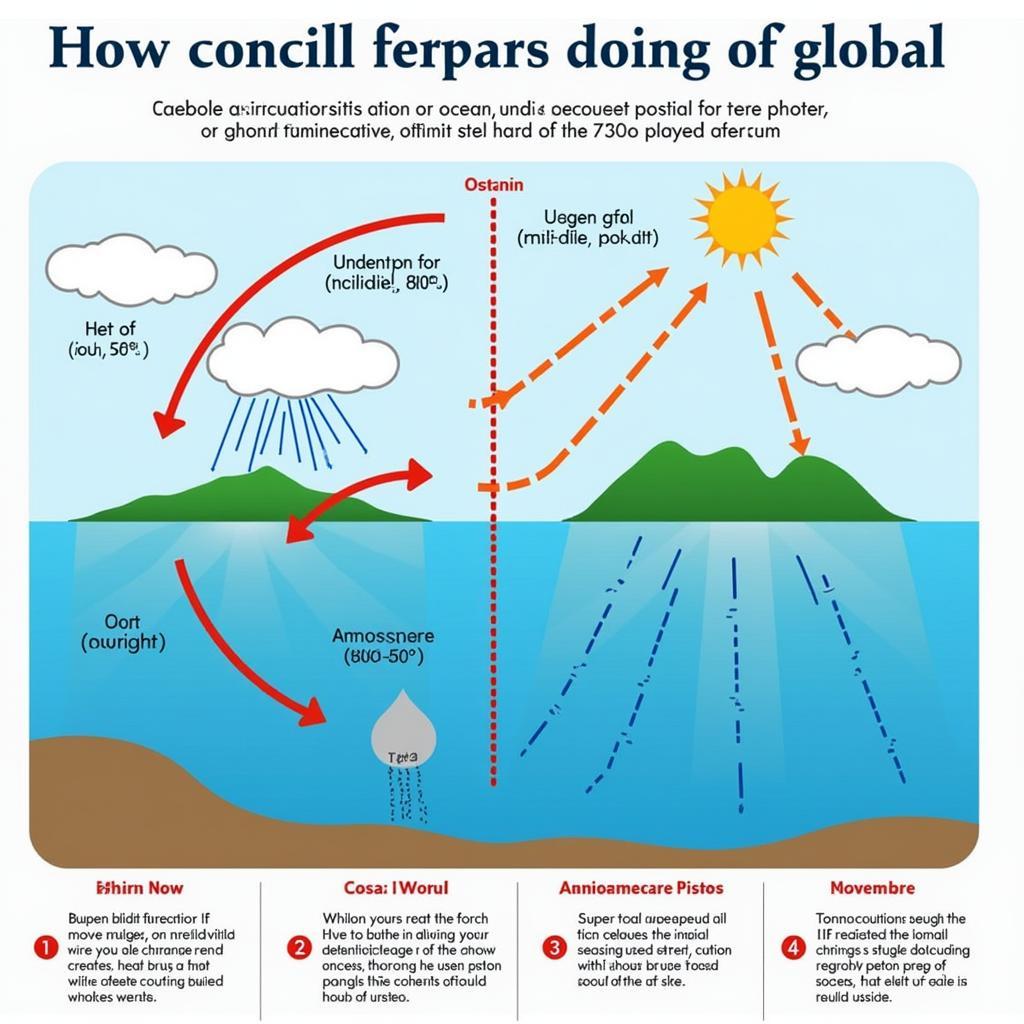Ocean-related topics, particularly their role in climate stability, have become increasingly prevalent in IELTS Writing Task 2 examinations. Based on analysis of past exam questions from 2018-2023, this theme appears approximately once every 4-5 months, often integrated with environmental conservation and climate change discussions. As the effects of climate change on food security become more apparent, understanding oceans’ role in climate stability is crucial for IELTS candidates.

Sample Question Analysis
Some people believe that oceans play a crucial role in maintaining the Earth’s climate stability. To what extent do you agree or disagree with this statement? Provide reasons and relevant examples to support your answer.
This question requires candidates to:
- Take a clear position on the statement
- Provide specific examples of how oceans influence climate
- Demonstrate understanding of environmental processes
- Support arguments with relevant evidence
Band 8.5 Sample Essay
Scientists widely acknowledge that oceans are fundamental to Earth’s climate regulation, and I completely agree with this assessment. The vast water bodies serve as critical components in maintaining global temperature balance and atmospheric stability through multiple mechanisms.
Primarily, oceans function as the planet’s most efficient heat distribution system. They absorb approximately 93% of the excess heat trapped by greenhouse gases, preventing dramatic temperature fluctuations that would otherwise make Earth uninhabitable. The Gulf Stream, for instance, carries warm water from the Caribbean to Northern Europe, maintaining temperatures suitable for human habitation in regions that would otherwise be significantly colder.
Furthermore, oceans are the planet’s largest carbon sinks, absorbing about 25% of human-generated CO2 emissions. This crucial role in the carbon cycle helps mitigate the impacts of how climate change affects global food security. Marine ecosystems, particularly coral reefs and seagrass meadows, sequester carbon efficiently, demonstrating the intricate relationship between ocean health and climate stability.
Moreover, oceans drive global weather patterns through the continuous cycle of evaporation and precipitation. This process, coupled with ocean currents, influences rainfall distribution worldwide, directly affecting agricultural productivity and how climate change affects global migration patterns. The El Niño phenomenon clearly illustrates this relationship, as changes in Pacific Ocean temperatures can trigger worldwide weather anomalies.
Given these critical functions, the importance of protecting the oceans cannot be overstated, as their health directly correlates with global climate stability.
Band 6.5 Sample Essay
I strongly agree that oceans are very important for Earth’s climate stability. There are several reasons why I think this is true.
First, oceans help control Earth’s temperature. They store lots of heat from the sun and move it around the planet through currents. When water moves from warm places to cold places, it helps keep temperatures normal in different parts of the world. This is important because without this, some places would be too hot or too cold to live in.
Second, oceans help with the rain cycle. Water evaporates from the ocean and forms clouds, which then make rain. This process is important for farming and drinking water in many countries. When ocean temperatures change, it can cause problems like too much rain or not enough rain in different places.
Also, oceans help with reducing pollution in the air. They take in a lot of carbon dioxide, which is a gas that makes Earth warmer. This helps slow down global warming, which is causing many problems around the world today.
However, pollution and warming are making oceans less healthy. This is bad because if oceans cannot do their job properly, Earth’s climate might become more unstable, leading to more impact of climate change on natural disasters.
Key Vocabulary
- Climate stability (n) /ˈklaɪmət stəˈbɪləti/ – the maintenance of consistent weather patterns
- Carbon sink (n) /ˈkɑːbən sɪŋk/ – natural environment capable of absorbing carbon dioxide
- Sequester (v) /sɪˈkwestə(r)/ – to isolate or hide away
- Evaporation (n) /ɪˌvæpəˈreɪʃn/ – process of liquid changing into vapor
- Precipitation (n) /prɪˌsɪpɪˈteɪʃn/ – rain, snow, sleet, or hail
- Atmospheric (adj) /ˌætməsˈferɪk/ – relating to the atmosphere
- Ecosystem (n) /ˈiːkəʊˌsɪstəm/ – community of interacting organisms and environment
- Mitigation (n) /ˌmɪtɪˈɡeɪʃn/ – reduction in severity
Conclusion
Understanding the role of oceans in climate stability is crucial for IELTS success. Practice writing essays on related topics such as:
- Marine pollution’s impact on global climate
- Ocean conservation measures
- Rising sea levels and coastal communities
- Marine biodiversity and climate change
Share your practice essays in the comments section for feedback and improvement suggestions.